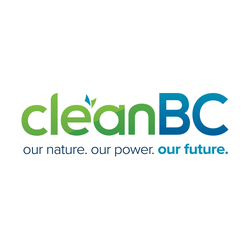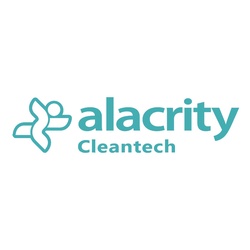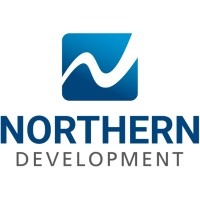
Closed
Investing in Canada Infrastructure Program — CleanBC Communities Fund
Last Update: October 27, 2025
BC, Canada
Money for BC clean-energy projects
Grant and Funding
At a glance
Funding available
Financing goals
Integrate new technologies
Increasing community impact
Reduce the ecological footprint
Eligible Funding
- No Condition
Timeline
- Open Date : January 26, 2022
- Closing date : May 25, 2022
Eligible candidates
Eligible Industries
- Utilities
Location
- British Columbia
Legal structures
- Non-profit
- Public or Parapublic institution
- For-profit business
Annual revenue
- All revenue ranges
Organisation size
- All organization sizes
Audience
- Indigenous Peoples
Non-profit candidates
Sector of operation
- Environment
- Economic, Social and Community Development
Target groups
- All the groups
Revenue structures
- All structures
Scope
- Local
- Municipal
- Regional
- Provincial
Overview
Get funding for infrastructure projects in communities across the province that focus on the management of renewable energy, access to clean-energy transportation, improved energy efficiency of buildings and the generation of clean energy.
Activities funded
- Construction or upgrade of infrastructure that increases the capacity to manage renewable energy, such as systems for transmitting, distributing, or storing clean energy like solar, wind, biogas, or geothermal.
- Deployment of clean energy transportation infrastructure, including public electric vehicle charging or hydrogen fueling stations, and fixed assets supporting active or clean transit options.
- Retrofitting or upgrading existing public buildings, including community and Indigenous infrastructure, to achieve greater energy efficiency, such as heating, cooling, insulation, and ventilation improvements.
- Implementation of projects that increase the generation of clean energy at the community level, for instance, building or expanding biogas, hydropower, or other renewable energy production facilities.
Examples of admissible projects:
$ 3,000,000
Setting up electric vehicle charging stations across Montreal
$ 10,000,000
Development of an electric bus fleet for public transportation
$ 4,400,000
Development of a bioenergy plant for processing agricultural waste
$ 2,000,000
Energy-efficient retrofitting of municipal buildings
$ 2,500,000
Expansion of renewable energy management systems
$ 1,300,000
Installation of solar panels on community buildings
Eligibility
- The applicant must be a local government, Indigenous organization, or a not-for-profit or for-profit entity collaborating with a local government or Indigenous organization in British Columbia.
- The project must be located in British Columbia and involve the construction, renewal, rehabilitation, or upgrade of tangible public infrastructure that reduces greenhouse gas emissions and provides a broad public benefit.
- The project must address at least one of the following outcomes: increased capacity to manage renewable energy, increased access to clean energy transportation, improved energy efficiency of buildings, or increased generation of clean energy.
- The applicant must demonstrate the ability to operate and maintain the assets created by the project over the long term.
- A council, board, or band council resolution authorizing the project and committing to the applicant’s cost-sharing requirements must be provided.
Who is eligible?
- Local governments in British Columbia (municipalities or regional districts)
- Indigenous organizations or governments within British Columbia
- Not-for-profit organizations collaborating with local or Indigenous governments in British Columbia
- For-profit companies collaborating with local or Indigenous governments in British Columbia
Who is not eligible
- Federal entities, including federal Crown Corporations.
- Organizations with no active location in British Columbia.
- Improvement districts, water utilities, and private water systems.
- Companies that are not defined as eligible local governments, Indigenous organizations, or not-for-profits/for-profits partnered with local governments or Indigenous organizations.
Eligible expenses
- Capital costs for constructing or renovating tangible physical infrastructure assets.
- Expenses for planning, assessment, and design, including environmental planning, surveying, engineering, and architectural supervision (up to a suggested 15% of total funding award).
- Consulting and management fees directly related to project design, assessment, or implementation.
- Costs related to required Climate Lens assessments and Community Employment Benefits plans (if applicable).
- Costs for engineering and environmental reviews, including environmental assessments, mitigation measures, and remedial activities as required by relevant legislation.
- Indigenous consultation costs, including accommodation where appropriate.
- Expenses for project-related communications and signage, including press releases, press conferences, translation, and signage acknowledging government funding partners.
- Incremental costs of approved "own-force labour"—additional work specifically tied to project construction, if tendering is not feasible and pre-approved in writing by program authorities.
Eligible geographic areas
- Province of British Columbia
Selection criteria
- Demonstrated measurable reduction of greenhouse gas (GHG) emissions, with a required Preliminary GHG Assessment comparing the proposed project to a baseline scenario.
- Alignment and contribution to at least one program outcome (managing renewable energy, clean energy transportation, building energy efficiency, or clean energy generation).
- Value for money—projects should represent an efficient and effective use of resources.
- Long-term sustainability, including the organization's capacity to operate and maintain the asset and manage ongoing lifecycle costs.
- Support for community objectives and incorporation of public, environmental, and sustainability principles.
How to apply
1
Contact Program Staff
- Reach out to the CCF Program via phone at 250-387-4060 or email at infra@gov.bc.ca.
- Discuss eligibility, program fit, project schedule, and other key details before starting the application.
2
Register and Access LGIS Portal
- Obtain a Business BCeID and password to access the Local Government Information System (LGIS).
- Submit BCeID credentials for LGIS portal access by May 4, 2022.
3
Prepare Application Documents
- Ensure your project meets the eligibility criteria and outcomes set by the CCF.
- Prepare all necessary documents including the Council/Board/Band Council Resolution, Evidence of secured funds, a Detailed Cost Estimate, and Preliminary Greenhouse Gas Assessment.
- Create a KML file for the project location, a project site plan, and gather any supplementary documents.
4
Draft Application
- Fill out the application form on the LGIS portal ensuring inclusion of all mandatory fields and details.
- Integrate project details, description, financials, and risk mitigation strategies into your application.
5
Submit Application
- Review all parts of the application for completeness and accuracy.
- Submit through the LGIS portal before the deadline on May 25, 2022, at 3 p.m.
Additional information
- Projects are evaluated through a merit-based process, including technical ranking, internal provincial review, and final assessment by the Oversight Committee and Infrastructure Canada.
- Successful applicants must retain ownership of funded assets for at least five years following project completion, unless otherwise approved by the federal and provincial governments.
- A detailed Climate Lens assessment and Community Employment Benefits assessment may be required as part of final approval steps for selected projects.
- There are specific procurement expectations: open public tendering is preferred, and large sole-source contracts may require lengthy additional federal review.
Contacts
infra@gov.bc.ca
250-387-4060
BC, Canada
Apply to this program
Frequently Asked Questions about the Investing in Canada Infrastructure Program — CleanBC Communities Fund Program
Here are answers to the most common questions about the Investing in Canada Infrastructure Program — CleanBC Communities Fund. This section explains what the program is, how much funding is available, eligibility requirements, application deadlines, and other important details to help you determine if this grant is right for your business.
What is the Investing in Canada Infrastructure Program — CleanBC Communities Fund?
What is the deadline to apply?
Who is eligible for the Investing in Canada Infrastructure Program — CleanBC Communities Fund program?
What expenses are eligible under Investing in Canada Infrastructure Program — CleanBC Communities Fund?
Who can I contact for more information about the Investing in Canada Infrastructure Program — CleanBC Communities Fund?
Where is the Investing in Canada Infrastructure Program — CleanBC Communities Fund available?
Is the Investing in Canada Infrastructure Program — CleanBC Communities Fund a grant, loan, or tax credit?
Apply to this program
More programs like this

Grant and FundingOpen
CleanBC — Custom Program
CleanBCSupports electrification projects with incentives for reducing greenhouse gases

Grant and FundingClosed
Genome British Columbia — GeneSolve Program
Genome British ColumbiaSupports genomics research to solve sector challenges in British Columbia

Grant and FundingClosed
First Nations Clean Energy Business Fund — Capacity Funding
Government of British ColumbiaFunding for clean energy and capacity-building projects

Grant and FundingClosed
CICE 2023 Directed Call for Innovation — Measurement, Monitoring and Verification (MMV) of Carbon Management
Government of British ColumbiaFunding for BC-based innovators

Grant and FundingClosed
Open Innovation Program
Government of British ColumbiaFunding for BC-based innovators

Grant and FundingOpen
FortisBC — Custom Performance Program
FortisBCThe Custom Efficiency Program by FortisBC offers funding to significantly enhance energy efficiency and reduce greenhouse gas emissions in industrial, commercial, and agricultural facilities.

Grant and FundingExpert AdviceSuspended
CleanBC — Custom-Lite Program
CleanBCSupports GHG reduction in commercial buildings through electrification measures

Expert AdviceOpen
Clean tech scale-up
Alacrity CanadaHelp to scale a British Columbia clean tech company

Grant and FundingOpen
Competitiveness Consulting Rebate
Northern Development Initiative Trust (NDIT)Money for consulting projects in Northern B.C

Grant and FundingOpen
Genome British Columbia — Sector Innovation Program
Genome British ColumbiaFunds genomics research addressing strategic challenges in key BC sectors
Sign up to our platform to access the Investing in Canada Infrastructure Program — CleanBC Communities Fund information sheet for free
Get access to 4,000+ programs, practical guides, personalized alerts, and an AI assistant to support your grant applications.